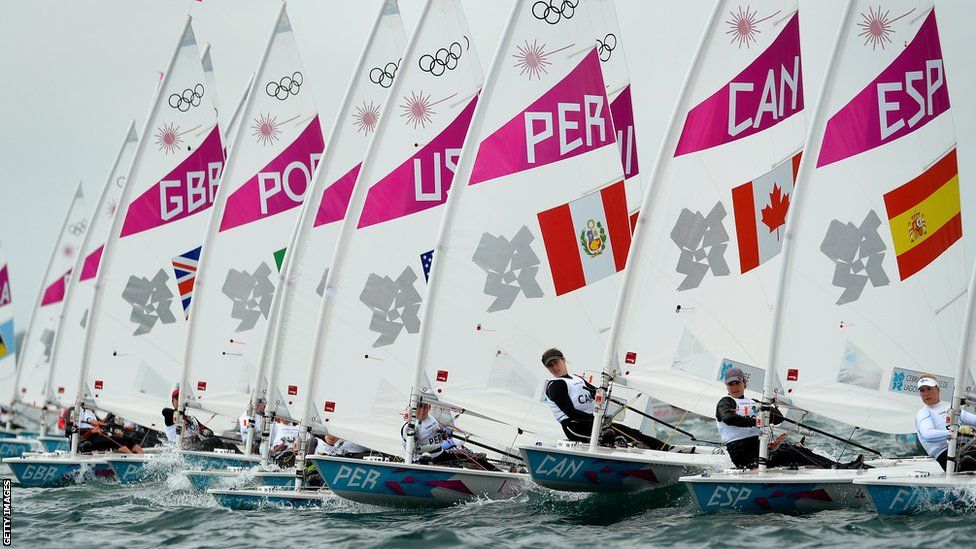

The article below covers the virtues of defeat and How to Lose to Win. I found this article online, written by Colin D Neal. It was written in 1972 and appeared in Yacht Racing.
It is as relevant today as it was then.
Let those who consistently sail to victory remain smug and not read this article, lest they see herein the future and be touched with the first gentle pangs of anxiety over their eventual defeat by that newcomer who now just barely muddles around the course.
Winning Sailors
Winning sailors don’t lose their touch, they just get out of the habit of learning from every race. Those of us who are losing have the decided advantage. We are hungry for victory and thus learn something from every loss.
After a year of watching the rest of the fleet sail gracefully off into the distance, the act of gradually improving to the point of being able to sail around several marks with your competitors brings one to a peak of ecstasy that will probably never be experienced again in sailing, except perhaps when one first rounds the windward mark in the lead.
The Novice
Therein lies the advantage of the novice, and the reason why this sage of 29 years asserts. Today’s losers shall inherit tomorrow’s trophies. The pains of defeat provide more incentive to win than do the joys of victory.
Losing a sailboat race is probably one of the most distressing conditions in which a person voluntarily puts himself. What could be simpler, at first sight, than speedily and easily sailing around those little marks?
Almost anyone can learn to sail within a matter of hours. In fact, if we are to be truthful with ourselves, we are forced to admit that sailing is ludicrously easy after a bit of practice.
If sailing is so easy, why then is competitive sailing so agonizingly difficult? We must learn how to lose to win.
During our first races as a beginner, why are we only one-third of the way to the mark when everyone else is rounding?
Or, why is our boat continually alternating between luffing and almost capsizing when everyone else is merrily beating into a 15-knot hurricane. They have smiles on their faces and joy in their hearts.
On light air days, how are they able to plod cheerfully onward while our tub wanders resolutely back from whence it came whenever a wave of more than two inches in height breaks apathetically under the bow?
Why do some sailors improve quicker than others?
With the same sails and boat, how come the other guy sails higher and faster than we do on the beats, and even faster on the reaches and runs?
The answer to such questions lies in the acquisition of a sound psychological understanding of the sailboat and the relationship of the helmsman to it.
And the key to this understanding (and to the secret of eventual success) lies in the recognition of our boat’s inherent devilishness. We must constantly battle and from which we can constantly learn.
Scientific knowledge to the contrary, who can privately doubt that the tender, hypersensitive creature we allegedly command actually has an inhumanly human and maliciously independent spirit of her own?
To those rationalists who scoff and claim otherwise, I say this: explain in 25 words or less why changing the length of the forestay by three inches puts you far ahead this week and at the back of the fleet the next, under the same wind conditions.
The old cliché about winning races by making the fewest mistakes is not only trite but true. And how do we learn to make the fewest mistakes? By making mistakes.
Nobody learns to cover until he loses because of his failure to cover. We learn how to round properly by rounding wrongly and losing.
We learn how to tune for and sail the beats by getting angry enough to find out everything we can. Then getting out and tuning and practicing and racing and racing and racing.
There are no child prodigies or other amazing successes in sailboat racing. The dozens (or hundreds) of variables in tuning, tactics, boat handling and windfinding see to that.
The guy who regularly beats you has served his apprenticeship of defeats and is now reaping the benefits. He got there as a result of a lengthy quest for ways to avoid the embarrassment and agony of defeat.
#sailingtowin #sailing #sailboatrace #sailingcoach #sail #sailtowin

